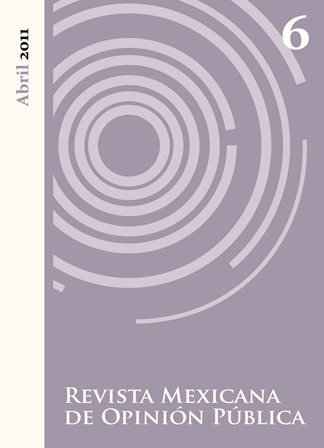Information, media and campaigns: how Mexican politics learn?
Main Article Content
Abstract
This article studies the way in which the voters seek and find out political information. Preference towards a party matters and has repercussions on the costs of the political information. Of equal way, the independent voters show a behavior different when they follow political information. The pre-electoral and postelectoral stages entail an attention different from each type from voter. The intermediate elections and the presidential ones imply processes and diverse moments as far as the form at which the different voters inquire, and the form in which these votes react. This study shows the importance granted to the policy by the industrialized countries or not, by the men or the women, in family or at work.
Article Details
How to Cite
Moreno, A. (2013). Information, media and campaigns: how Mexican politics learn?. Revista Mexicana De Opinión Pública, (6). https://doi.org/10.22201/fcpys.24484911e.2009.6.41809
Citas en Dimensions Service

Revista Mexicana de Opinión Pública por Universidad Nacional Autónoma de México se distribuye bajo una Licencia Creative Commons Atribución-NoComercial-SinDerivar 4.0 Internacional.
Basada en una obra en http://revistas.unam.mx/index.php/rmop.




